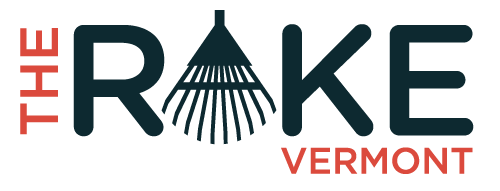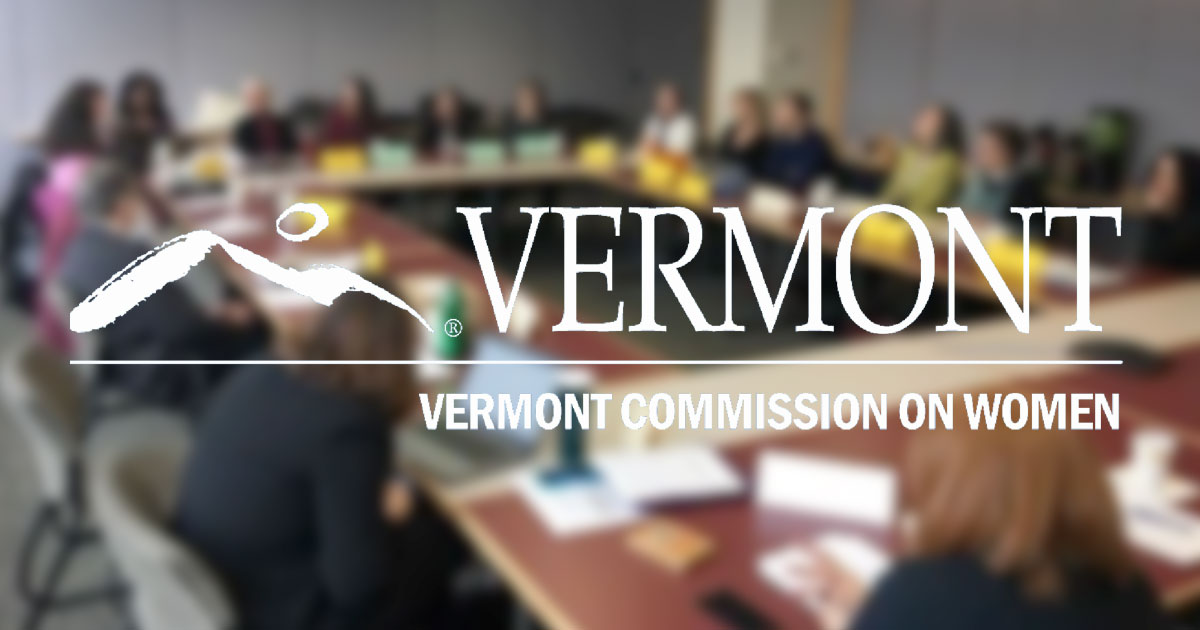An investigation by The Rake Vermont discovered that Burlington attorney and former Ward 1 city councilor Ed Adrian resigned from the Vermont Commission on Women (VCW) shortly after he engaged in an aggressive line of questioning of an abuse survivor during a February 2022 VCW meeting.
Adrian, who served on Burlington’s city council from 2007 to 2012, is politically entrenched in Vermont. He has held various positions with the State of Vermont, including that of State Prosecuting Attorney for the Secretary of State’s Office of Professional Regulation, and is on the Vermont Legislative Apportionment Board. Until February, Adrian also served as a commissioner on the Vermont Commission on Women (VCW) — a “non-partisan state agency advancing rights and opportunities for women and girls” — and was the only man on the commission during that time, despite being criticized for making disparaging or hostile remarks towards women.
During the February 2022 meeting of the Vermont Women’s Commission, a Vermont National Guardswoman of color appeared before the commission to discuss her personal experiences facing harassment and abuse as a member of the Vermont National Guard. The Guard has a documented history of sexism and sexual harassment and abuse. During the discussion with the guardswoman, Adrian began to cross-examine “as though she were in the wrong for not exposing her pain as he felt best served him,” according to VCW Co-Chair and Lincoln Project employee Lisa Senecal in emails obtained by The Rake.
Adrian’s questioning caused Senecal to reprimand him during the meeting over video conference, and by email for “doubling down on the appropriateness of his questions and blaming both [VCW commissioner Kiah Morris] and [the guardswoman] for necessitating his conduct.” Senecal called Adrian’s questions “harmful, embarrassing, egregious behavior.” In a pair of follow-up emails, however, Senecal apologized to Adrian directly according to records obtained by The Rake.
Adrian was one of two men to serve on the VCW in the past 20 years. These roles are appointed by the governor and the state legislature and, as is often the case with appointments, rely on the insider politics of the state. Adrian, despite his reprimand from Senecal, enjoys a chummy relationship with her online. Additionally, there seems to be little evidence that Adrian has any qualifications to be appointed to the VCW, as it is not clear what work he has done to “advance rights and opportunities for women and girls.” His credentials as an attorney and former city councilor don’t automatically lend themselves to understanding women’s issues in the state.
The aftermath of the meeting triggered a wide range of responses from other commissioners. For some, there were questions over how the guardswoman was even brought and cleared to speak. Others held firm that regardless of the process, Adrian’s conduct was inappropriate. This included Kerrin Durfee, Human Resources Director of the City of Burlington and former Burlington Democrat City Council Candidate, who in an email to Senecal, VCW Executive Director Cary Brown, and commissioner Lilly Talbert explained that she spoke to Adrian “at length” after the meeting. Durfee wrote that Adrian “like many white men did not 100% ‘get it’” and noted that Adrian was hurt by her comments explaining this to him. Durfee, who is a Black woman, stated she’s “grown very tired explaining privilege and the need for white men to just listen.”
Wendy Knight, who serves as the Vermont Department of Liquor and Lottery Commissioner, stated in an email that Adrian’s departure “is a good start” and was “relieved to see the VCW has acknowledged its harm.”
Adrian had his share of defenders. Heidi Tringe, a partner and lobbyist for the consulting firm MMR, emailed Adrian directly saying, “So sorry, again, that you were subjected to such an attack,” while Lisa Carlson, a small business owner and Air Force veteran, wrote an email to Senecal defending Adrian’s actions. She also stated that both she and Adrian are looked upon as “oppressors” because of their white racial identity and that the “mostly the white commissioners” who hadn’t supported Kiah Morris’ concerns had been “targeted.” Carlson has since left her post as commissioner.
Adrian’s resignation note read: “Right now my professional responsibilities are putting severe constraints on my schedule, that has in turn limited my volunteer time. Thank you for the opportunity to serve. It has been an interesting experience. All the best to you moving forward.” The Rake could not find any instance in which Adrian apologized for his actions in email records, and he did not respond to requests for comment.
Executive Director Brown responded to Adrian’s resignation email from the Vermont Commission on Women thanking him, while noting, “I know it hasn’t always been easy for you.”
In a statement to The Rake on Adrian’s qualifications to serve, Brown stated that the VCW’s strength “comes from having diverse voices at the table — whether it’s diversity of political viewpoints, race, gender identity, sexual orientation, class, age or any others — with a common goal,” while also stating that the Governor, Speaker of the House and Senate Committee on Committees who appoint VCW commissioners, “recognize and share this value.”
The commission has no transgender women among its ranks, at a time when nationally, and in Vermont, transgender people fear for their safety. When asked when that would happen, Brown did not respond, nor did Vermont Speaker of the House Jill Krowinski, who has the ability to nominate candidates to the VCW.
As for Adrian, his provocateur nature isn’t new. While on Burlington City Council in 2010, Seven Days published a glowing profile of him, in which he discussed relishing the role of the contrarian. His Twitter presence produces many notable exchanges. This includes sparring with women and femme medical professionals and educators online, claiming in the latter that teachers and the Vermont NEA were not putting in the necessary work or sacrifices during their “downtime” (summer break), a time when many educators are not paid. When one user noted his position on the VCW and his disregard and misunderstanding of a profession dominated by women, Adrian responded “I find that offensive” and doubled down. After these exchanges, Adrian garnered a tacit defense from Senecal.
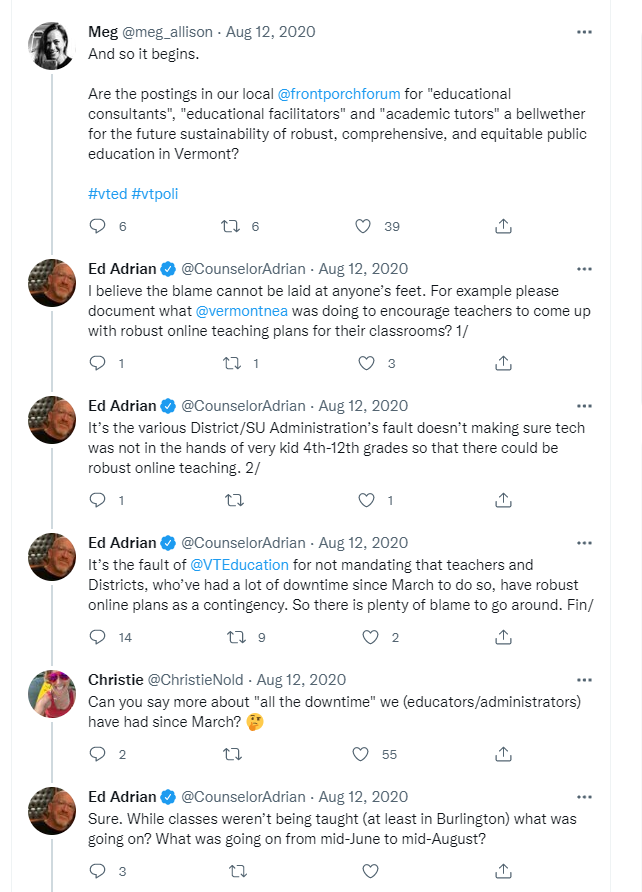
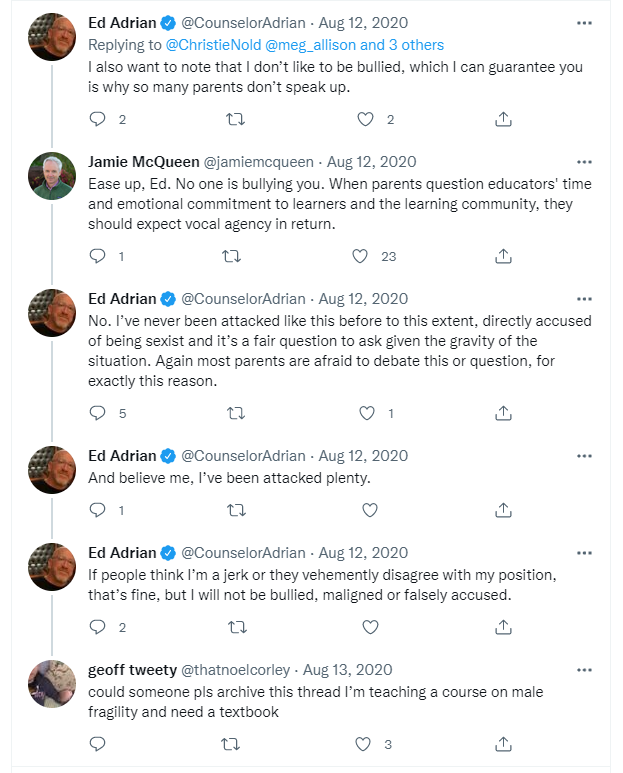
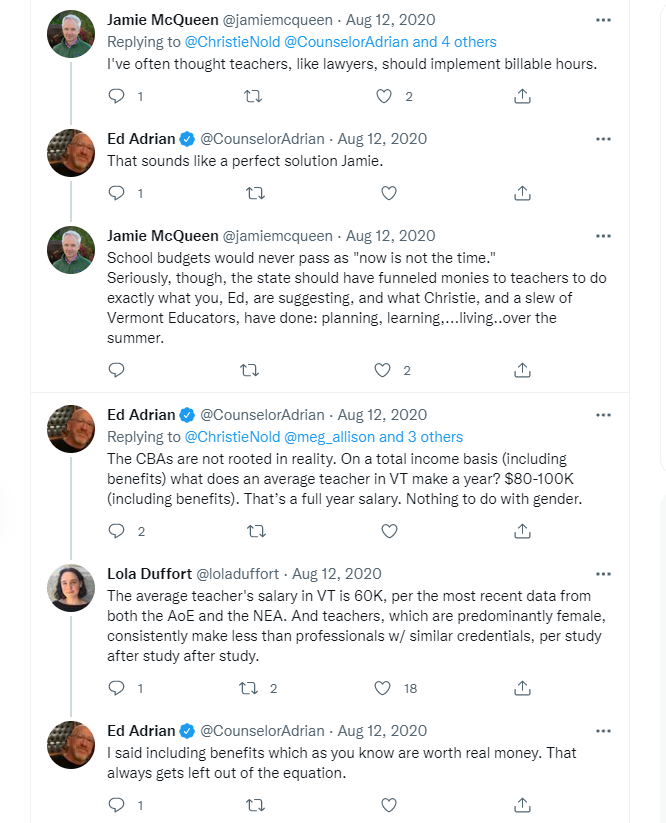
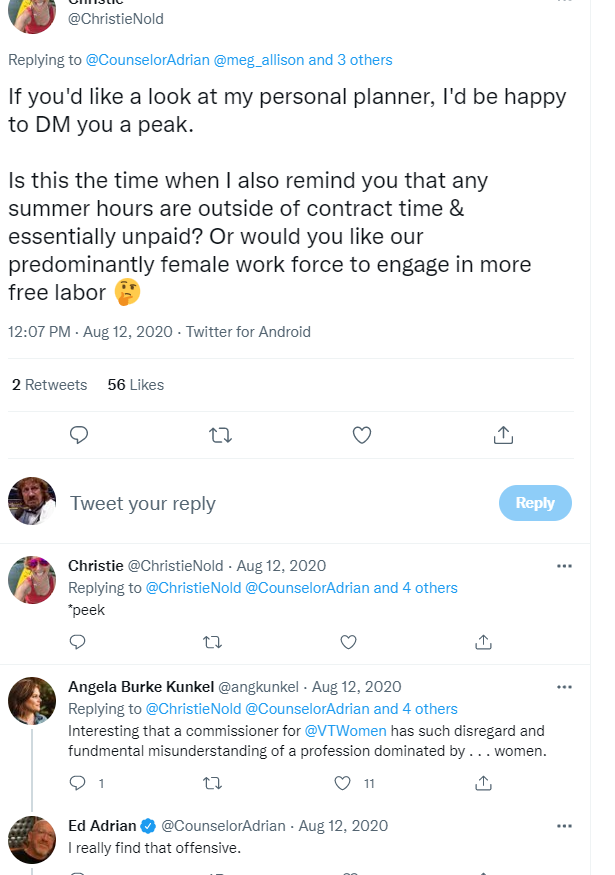
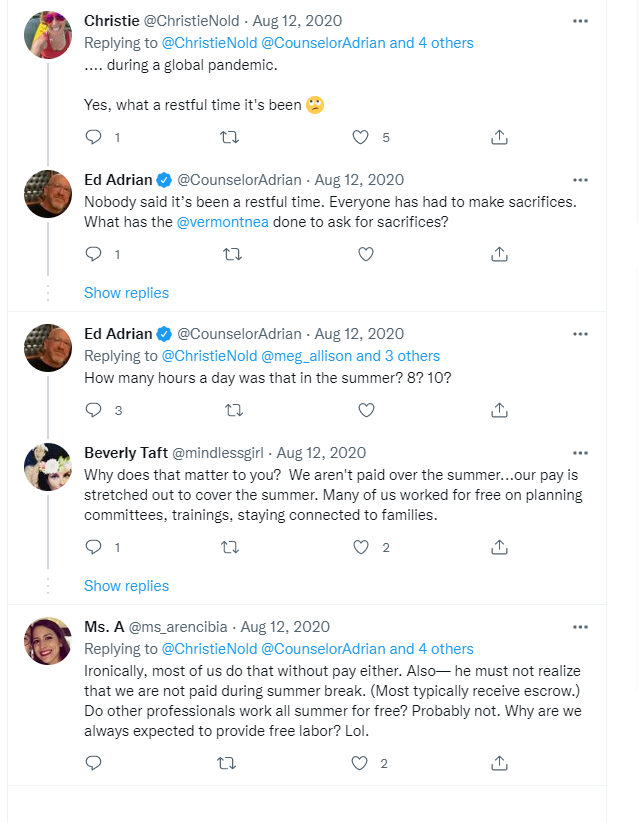
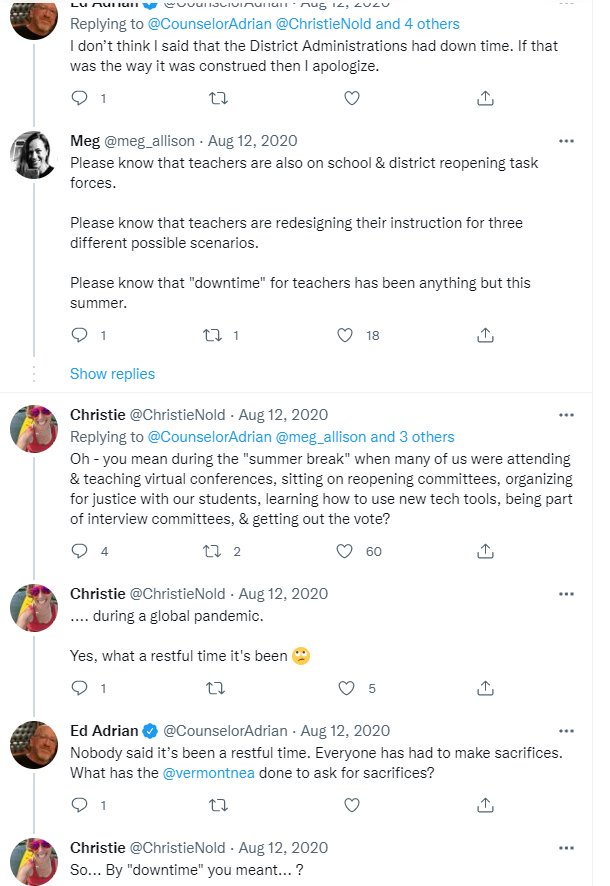
Adrian’s direct relationship to power in a small state allows him, without obvious professional qualifications, to serve on such a committee while experiencing minimal political and professional consequences for the harm he caused during the February VCW meeting.
The VCW, one of the longest continually run women’s commissions in America, apologized for the re-lived trauma Adrian and the commission caused the guardswoman, but offered little in terms of accountability.
When asked what the VCW has done to be accountable to the public and to repair the harm caused by Adrian’s actions, Brown stated that it has “taken several concrete steps” toward integrating diversity, equity, and inclusion principles into the daily work of the VCW. This includes “engaging with outside facilitators and trainers” as well as “planning comprehensive and ongoing education and training.”
While the VCW’s guest has to live with both her past trauma and the trauma reintroduced by Ed Adrian, he will maintain strong ties to political power in Vermont. Adrian, like most political insiders, will shirk meaningful accountability, and the VCW will remedy this harmful incident with the preferred cure of Vermont politics: a couple of new trainings.
Matt Moore is a writer from Vermont. He is on the editorial collective of The Rake Vermont.
